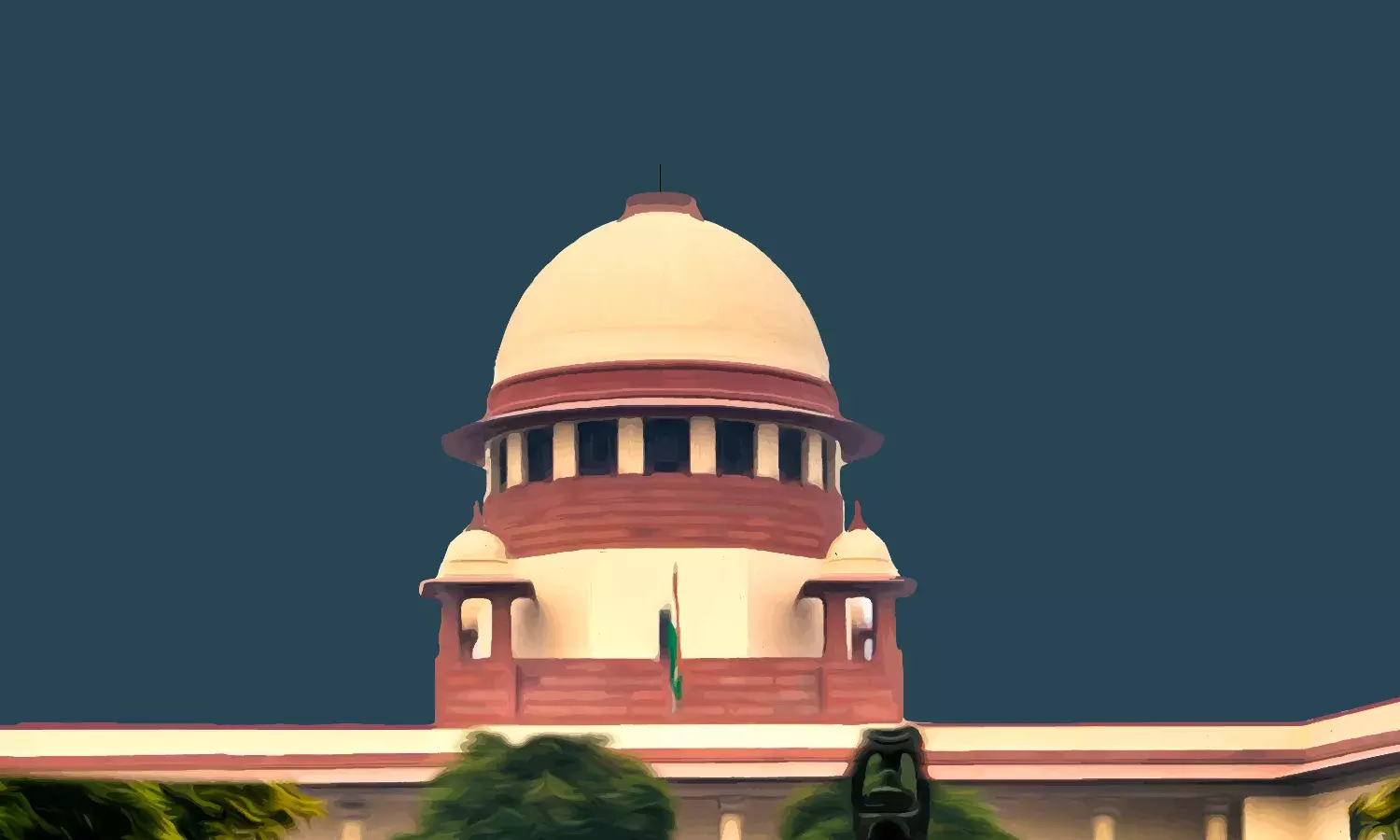Tenant In Sufferance Is Not Entitled To Any Protection Under The Rent Act Vis à Vis The SARFAESI Act: Supreme Court Reiterates

The Appeal before the Supreme Court was directed against the Orders passed by the Chief Metropolitan Magistrate, Esplanade, Mumbai, rejecting the Application filed by the Appellant for restraining HDFC Bank, the first Respondent, from taking possession of the secured asset, claiming to be a tenent of the 2nd and 3rd Respondent Borrowers.
The accounts of the Borrowers were declared as non-performing assets (NPA) and the Bank issued a notice under Section 13(2) of the SARFAESI Act, 2002. The Appellant, claiming to be a tenant of the Secured Asset filed an application before the Magistrate seeking protection of his possession of the Secured Asset, as the Magistrate was ceased with the petition under Section 14 of the SARFAESI Act filed by the Bank. The application of the Appellant was dismissed by the Magistrate holding that a registered tenancy instrument was not placed on record by the Appellant.
Contentions of the Appellant before the Apex Court was that he had been paying rent regularly to the landlord and had already paid some rent in advance, and hence he couldn't be evicted from the secured asset without due process of law.
On the other hand, the contentions of the Respondent-Bank was that the rent receipts that are said to be for the period prior to the mortgage have been issued by the landlord after the date of creation of the mortgage. It was contented by the Bank that there is no material to show that the tenancy was created earlier to the date of mortgage and the oral tenancy claimed by the Appellant is an afterthought.
The Apex Court noted the availability of alternate remedy in the form of an appeal under Section 17 of the SARFAESI Act, but proceeded to consider the case on merit on account of the pendency of the Appeal before it since 2016.
The Apex Court expressed doubt as to the bonafides of the tenant, as there was no good evidence to establish the tenancy of the appellant. Also, the Court held that the Rent Act would not come to the aid of a "tenant in sufferance" vis à vis the SARFAESI Act due to the operation of Section 13(2) read with Section 13(13) of the SARFAESI Act.
The Apex Court, after referring to the case of Bajarang Shyamsunder Agarwal v. Central Bank of India & Anr, held that "If a tenancy underl aw comes into existence after the creation of a mortgage but prior to issuance of a notice under Section 13(2) of the SARFAESI Act, it has to satisfy the conditions of Section 65A of the Transfer of Property Act, 1882 and If a tenant claims that he is entitled to possession of a Secured Asset for a term of more than a year, it has to be supported by the execution of a registered instrument."
Hence, the Apex Court held that in the absence of a registered instrument, if the tenant only relies upon an unregistered instrument or an oral agreement accompanied by delivery of possession, the tenant is not entitled to possession of the secured asset for more than the period prescribed under the provisions of the Transfer of Property Act.
The Apex Court dismissed the appeal while holding that, "Hence, even if the tenancy has been claimed to be renewed in terms of Section13(13) of the SARFAESI Act, the Borrower would be required to seek consent of the secured creditor for transfer of the Secured Asset by way of sale, lease or otherwise, after issuance of the notice under Section 13(2) of the SARFAESI Act and, admittedly, no such consent has been sought by the Borrower in the present case."

